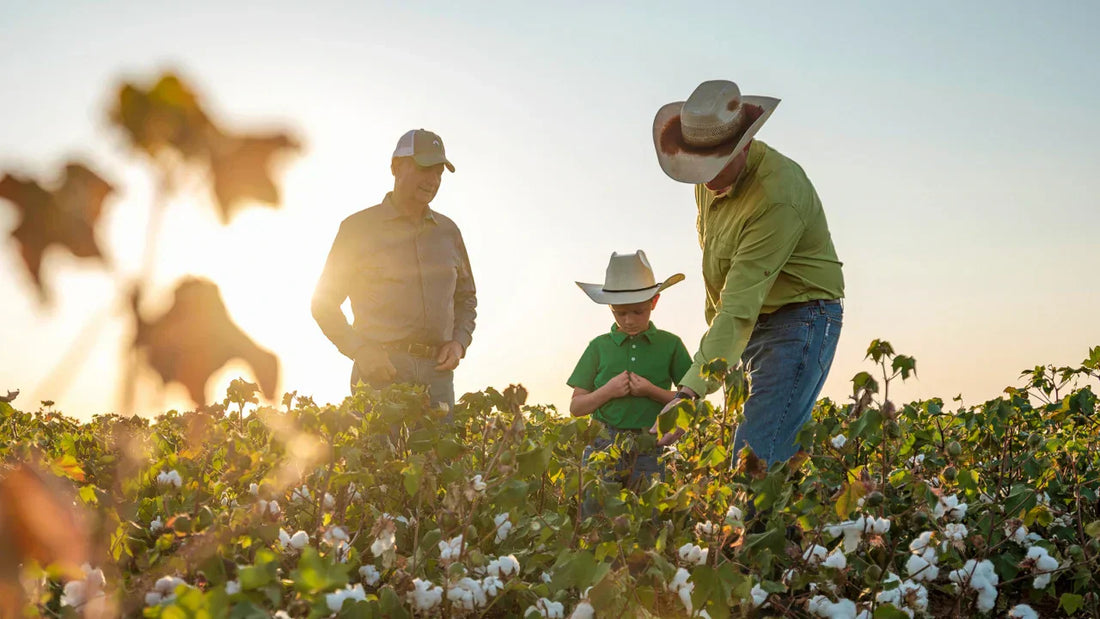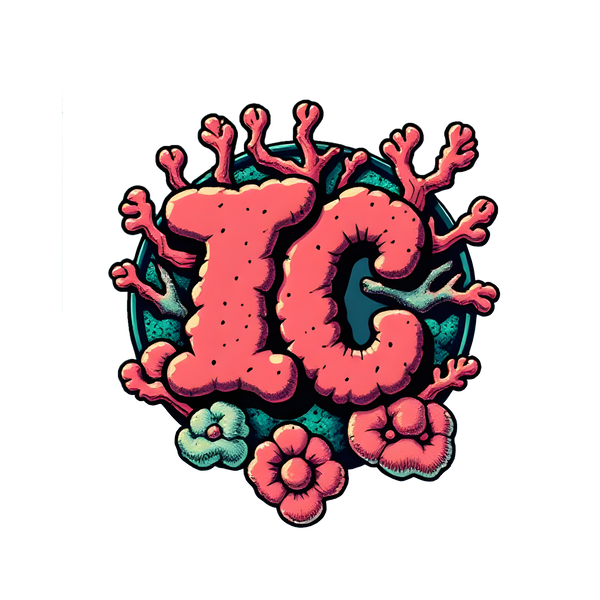
Blood in the Fibers: The Dirty Truth About Cotton
🌱 From Seed to Shirt: The True Cost of Cotton
Cotton may feel innocent—soft, natural, everyday—but it’s far from harmless. Conventional cotton farming is one of the planet’s most environmentally destructive industries. It uses 16% of global insecticides and 10–16% of all pesticides worldwide, yet covers barely 2.5% of the world’s croplands.
To grow just one non‑organic T‑shirt, you need up to 2,700 liters of water. Globally, cotton production uses around 2.6% of all freshwater.
These toxins don’t stay on the fields. They wash into rivers, infiltrate aquifers, and reach the sea—threatening coral reefs, fish nurseries, and coastal communities. In places like the Aral Sea and Murray–Darling Basin, cotton irrigation has drained water bodies dry. Meanwhile, downstream farmworkers face serious health risks from persistent pesticide exposure.
“Cotton isn’t the enemy — but our farming systems are,” says La Rhea Pepper, Managing Director at Textile Exchange. “Organic cotton proves we can grow textiles that care for the land, not exploit it.”
🧪 Conventional Cotton: Fast Fashion’s Dirty Secret
The problem isn’t fabric—it’s how it’s grown. Conventional cotton relies heavily on monocultures and genetically modified seeds, sprayed with synthetic chemicals that degrade soil structure, kill beneficial insects, and reduce biodiversity by up to 30% compared to organic systems.
Water is another casualty. Cotton is the thirstiest fiber crop, requiring more water than almost any other—and is often grown in drought-prone regions. This diverts water from entire communities and contributes to water scarcity. Soil becomes compacted and infertile; rivers run dry; farmers and ecosystems suffer—all for cheap, mass-produced shirts.
Labor conditions are no better. Cotton supports 30 million farmers globally, many of whom are underpaid, exposed to toxins, and trapped in debt cycles.
Conventional cotton may feel soft on skin — but it’s rough on people and the planet.
🌿 Organic Cotton: Grown in Tandem with Nature
Organic cotton flips the script.
It bans synthetic pesticides and fertilizers, using compost, crop rotation, beneficial insects, and shelter crops to restore soil fertility, water retention, and biodiversity. Organic farms support 30% more wildlife — from pollinators to soil microbes.
Water management improves too. Organic soils retain moisture better, reducing irrigation needs by up to 91%. On average, organic cotton uses around 1,100 liters of water per T-shirt, cutting water use in half.
This isn’t about doing less harm — it’s about doing good.
Organic cotton is restorative — grown with intention, nurtured with care, and respectful of the land. It’s a partnership with nature, not a conquest.
 Grown by hand. Rooted in care. Organic cotton doesn’t just grow—it heals.
Grown by hand. Rooted in care. Organic cotton doesn’t just grow—it heals.
👕 Our Fabric: The Good Stuff
At Immoral Coral, we don’t just print shirts — we print change.
Every tee is made from Allmade’s revolutionary triblend, blending comfort with purpose:
-
25% Certified Organic Cotton — grown with care, without toxic pesticides
-
50% Recycled Polyester — including ocean-bound plastic bottles
-
25% TENCEL™ Modal — from sustainably harvested beech trees
That means every shirt:
-
Removes 6 plastic bottles from the waste stream
-
Reduces water waste
-
Supports better farming
-
Looks good doing it
We like to think of our shirts as wearable protest signs — bold, ironic, and built for rebels who know style shouldn't cost the Earth.
💬 Want More Organic in Your Closet?
Right now, our Allmade triblend features 25% certified organic cotton — and we’re proud of that. But we’re ready to do more.
We’re exploring a 100% organic cotton line, and we want your voice in the mix.
Would you wear it? Would you proudly rock a shirt made with love, not chemicals?
👇 Leave a comment and let us know.
Because this movement only works when it's your rebellion too.
🔗 Join the Rebellion. Save the Reef.
👉 Shop Immoral Coral
📸 Follow Us on Instagram

1 comment
Absolutely!!!!! 💯 sign me up!!!